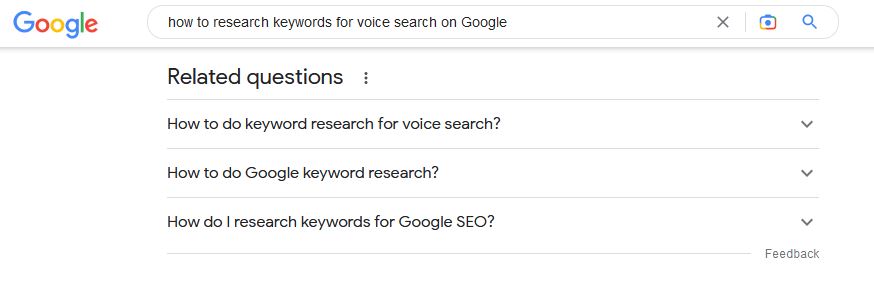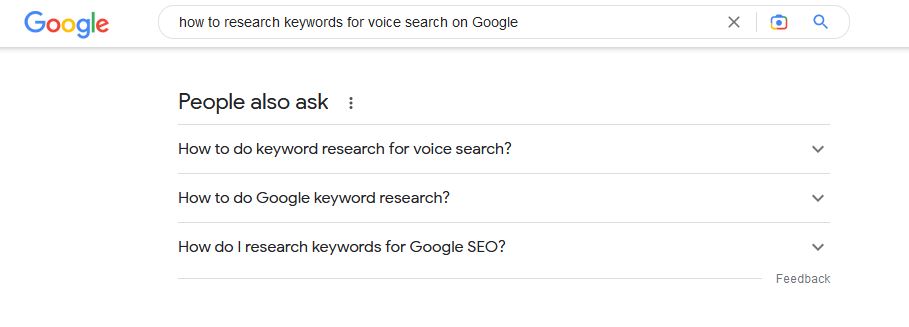An email from a client regarding a call he received regarding someone claiming he needs to pay in order to have his website included with Google Voice Search Results. The Google Scams will always be there, but when it comes to being included within Google’s Search Results, there’s no need to pay. So as search engines evolve, so do the telephone scams regarding your business and Google so I thought now would be a good time to share a quick post on this to potentially help any business from falling for this scam. First of all, you do not need to pay to have your content listed in Google for the organic search results or with Google Business Profile.
So no, you do not need to pay to have your website included in Google Voice Search Database.
How Does Google Voice Search Work?
Google Voice Search works by using Google’s search algorithm to retrieve the most relevant information from websites and provide it in a voice format to the user. It’s essentially taking the typing aspect of what you would search for on Google via your smartphone or computer.
Google Voice Search uses a combination of natural language processing (NLP), machine learning, and speech recognition technologies to understand and respond to user queries. When a user initiates a voice search, their voice is captured by the device’s microphone and converted into a digital audio file. This audio file is then sent to Google’s servers for processing.
On the server-side, Google’s speech recognition technology converts the audio file into text, which is then analyzed using NLP algorithms to identify the intent of the query and extract relevant information, such as the user’s location, search history, and context. Based on this analysis, Google’s search algorithm retrieves relevant results and presents them to the user in a conversational manner. The voice assistant then responds back to the user with the most relevant information or answer to their query, either through voice or text.
Over time, as users interact with Google Voice Search, the system learns from their behaviors and improves its ability to understand and accurately respond to user queries.
How to Improve Google Voice Search Results for your website
To improve the chances of your website appearing in Google Voice Search results, you can optimize your content for voice search queries by using a combination of natural language and long-tail keywords that match the way people speak. Anytime when conducting a keyword research for a website, you may noticed the longer phrases have lower searches, but they tend to be more on target to what your prospective audience are looking for. These are the types of keywords you are looking for. Longtail keywords equals awesomeness! You can also ensure that your website is mobile-friendly and that your content is structured in a way that is easy for Google’s algorithms to understand.
Here are a few Tips to help with your website
- Use natural language: Write content that is easy to understand and use natural language that matches the way people speak in everyday conversations.
- Focus on long-tail keywords: Voice searches are often longer and more conversational than typed queries. Thus, it’s essential to focus on long-tail keywords that match users’ natural language and include questions or phrases. Long-tail keywords are phrases or search queries that are longer and more specific than traditional keywords. They typically consist of three or more words and are highly targeted to a particular topic, product, or service. Long Tail Keywords generally will have lower search volumes than the main keyword for your particular product or service, but long tail keywords have always been a good choice for a website campaign as the searcher will often be closer to making decision when using these phrases.
- You can look for keyword research tools to help you find possible search phrases related to your search query.
- You can look to Google Search Console and dive into the past 16 months of data to find the longer search terms that may be the gems you are looking for. You can narrow down to certain pages, date ranges, countries just to name a few options.
- Use Google. When Searching for your targeted term on Google, look on the page for People also Ask or Related questions. There you may see some ideas here that you will want to include. People also ask isn’t always available and you can also try incognito if you find you are getting the never ending search results if you are logged into your Google Account. The first image below is for a search when I was logged into Google, and the second was in a separate browser using Incognito Mode. Same search is getting the same questions, it’s just named slightly different. Results can differ from your own searches.


- Optimize for local search: Voice searches are frequently related to local queries. Ensure that your website is optimized for local SEO by including your business’s physical address, contact details, and maps. Having good supporting content on your website itself can potentially help with this as well.
- Ensure mobile-friendliness: Voice searches are commonly performed on mobile devices, so your website must be mobile-friendly and responsive to various screen sizes. Most major CMS platforms are mobile friendly, but double checking would be a good idea.
- Provide structured data: Providing structured data on your website can help Google understand your content and improve its chances of appearing in voice search results.
- Use concise answers: Voice assistants tend to provide brief answers to queries. So, ensure that your content provides clear, concise answers to common questions related to your industry or niche.
- Focus on featured snippets: Featured snippets are highlighted results that appear at the top of search results. Focus on optimizing your content to rank for featured snippets, as they are commonly used in voice search responses.
However, it’s worth noting that appearing in Google Voice Search results is not guaranteed, as it depends on several factors, including the search query and the relevance and authority of your website’s content.
When will Google actually call you?
This is more common when you have a Google Ads Account. Lately Google has been getting more proactive with calls and emails from The Google Ads Reps with quarterly followups on accounts. With these, they’ll often call and follow up with an email. As always with Google Ads, you can always just contact them via their contact information that is available within Google Ads.
